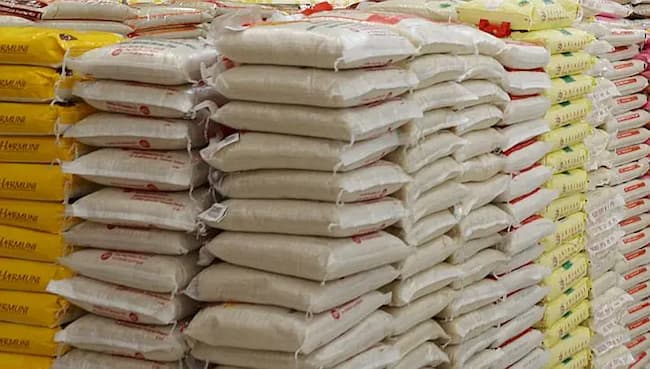At the country’s capital, Federal Capital Territory (FCT), Nigerians are facing difficulties in finding the sales points for the N40,000 subsidized rice launched by the Federal Government last week.
The initiative, which was officially kicked off on September 5, 2024, by the Minister of Agriculture and Food Security, Senator Abubakar Kyari, aims to sell 30,000 metric tonnes of milled rice at a subsidized price of N40,000 per 50kg bag.
During the launch in Abuja, Kyari emphasized that this effort is part of President Bola Tinubu’s commitment to ensuring that “Nigerians do not go to bed hungry.” He acknowledged the various challenges contributing to the rising food costs, including the impacts of the COVID-19 pandemic, the ongoing Russia-Ukraine war, climate change, and domestic economic issues.
To prevent racketeering and ensure fair distribution, the government has limited the sale to public servants with a National Identification Number (NIN), allowing only one bag per person. The Minister urged citizens to cooperate with government agencies to make this initiative successful and alleviate the ongoing food crisis in the country.
“We are all aware that in the recent past, especially after the mass of COVID-19, and due to the Russian-Ukraine war, climate change and other localised factors, challenges food prices, have made it difficult for Nigerians,” Kyari said.
He assured the public that the government has put in place mechanisms to ensure transparency and the smooth sale of the subsidised rice.
He urged citizens to cooperate with government agencies to make the initiative successful, stating, “I, therefore, urge our dear citizens to cooperate with the relevant agencies of government who will try to serve you to achieve this great initiative of the government.
“Let us work together to ensure that the dream of the present administration to uphold the fundamental right to food for all Nigerians is achieved.”
Kyari also stated that to ensure fair distribution, the rice sales would follow a “one person, one bag” policy.
But despite the fanfare around the launch, FCT residents have expressed frustration over their inability to locate designated collection or payment points for the rice. Many say they have not seen any distribution points set up in their local areas.
A resident of Kuje Area Council, Mrs Yunusa Eleojo, shared her disappointment. She recounted buying a bag of rice from a wholesale vendor for N84,000, more than double the price promised by the government.
“I only heard the government is selling rice at N40,000 per bag, I don’t know where the stores are located, not to talk of how to buy,” she said.
“I had to buy a bag of rice for N84,000 on Friday from a wholesaler who even claimed it was a wholesale price,” she added.
Another resident from Bwari Area Council, identified as Mama Twins voiced similar concerns.
“We saw them showing rice on the television saying the government is selling rice for N40,000 but up till now, we are not aware of anywhere to buy the rice here,” she said.
She also raised concerns that middlemen might take advantage of the distribution chain, further complicating access to the subsidised rice.
Another FCT resident, Salami Taiwo expressed skepticism about the entire initiative.
“The day I heard about the N40,000 per bag of rice I knew it would not be realistic because of the way the government has been treating us,” he said.
Attempts to obtain a response from the Federal Ministry of Agriculture and Food Security regarding this issue have not been successful as of t he time of reporting.Officials from the ministry’s Public Affairs Department did not reply to inquiries related to the matter.
As the public awaits further information from the government on how and where to access the subsidized rice, frustration among residents continues to mount. Many are hopeful that the distribution challenges will be resolved soon so that the subsidized rice can reach those who need it most.
This article was written by Tamaraebiju Jide, a student at Elizade University
